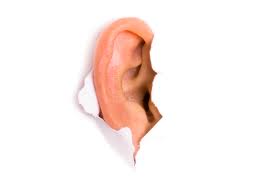Healthcare with Confidence
Meniere’s disease is caused by dysfunction of the inner ear. This disease is also known as idiopathic endolymphatic hydrops.
Endolymphatic swelling relate to the increased hydraulic pressure in the inner ear endolymphatic system. Accumulation of excess endolymph pressure can cause such symptoms as: loss of hearing, sometimes episodic vertigo, tinnitus (typically low-pitched) sound and ear fullness (eg, pressure, discomfort, a feeling of stuffiness).

The term endolymphatic edema often used synonymously with Ménière’s disease and Meniere’s syndrome. However, Meniere’s disease is idiopathic, by definition, whereas the Meniere’s syndrome can occur as a secondary qualifications of intentions as a result of various processes hindering normal production or resorption of the endolymph (eg endocrine disorders, trauma, electrolyte imbalance, autoimmune dysfunction, effects of drugs, parasitic infections, hyperlipidemia).
Diagnostics
Evaluation and treatment of vertigo is one of the most difficult medical problems. Sources imbalance may vary from simple conditions (e.g., dehydration) to severe disease (e.g., brain tumor). It is necessary to distinguish the problems of the central nervous system (CNS) of circulatory abnormalities, chemical, and hormonal imbalance, and the inner peripheral ear disorders. Often, the distinction is not clear.
Management
Drug therapy can be directed to the actual treatment of the symptoms of an acute attack or a preventive warning of attacks. If endolymphatic hydrops is stipulated by Meniere’s syndrome, rather than the primary disease, the need for diagnosis and treatment of the underlying disease (eg, thyroid disease).
Surgical treatment of Meniere’s disease (labyrinthectomy) is controversial. The decision on such a method takes an experienced based on the survey, in each individual case.
As a rule, indication for surgery is the lack of reaction to a drug treatment for 3-6 months. However, patients with severe weakness may require surgery before. Before surgery is considered, it is necessary to clearly define what exactly the cause of the disease in the ear.
For surgery the patient should be in good shape and able to withstand anesthesia. Surgery is not necessarily contraindicated in elderly patients. Patients under the age of 80 suffer labyrinthectomy good enough.
Otitis media and mastoiditis are contraindications for surgery. Before the surgery treatment is necessary to avoid an increased risk of meningitis.
Bilateral vestibular disease is a relative contraindication to surgery, because of the risk of complete loss of inner ear function (Dandy-Walker syndrome).



